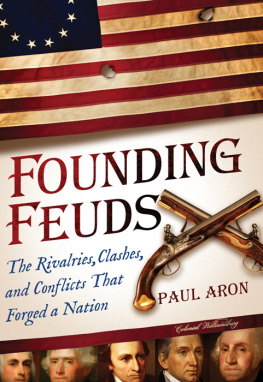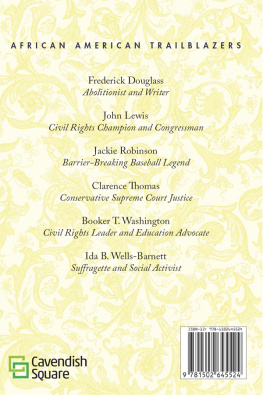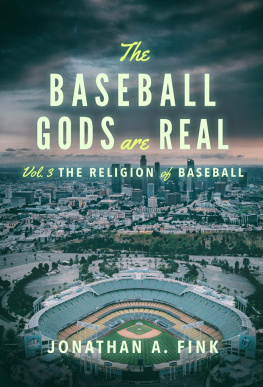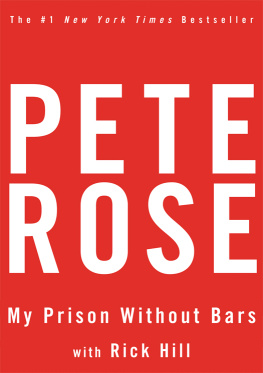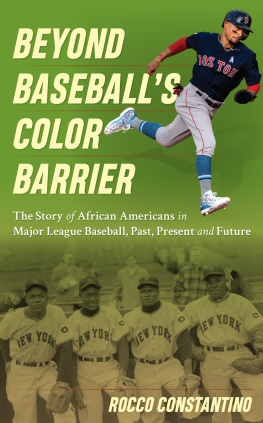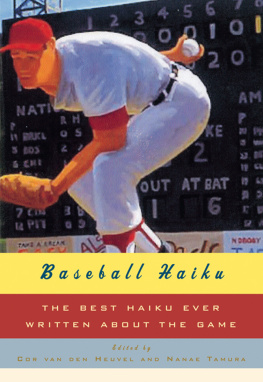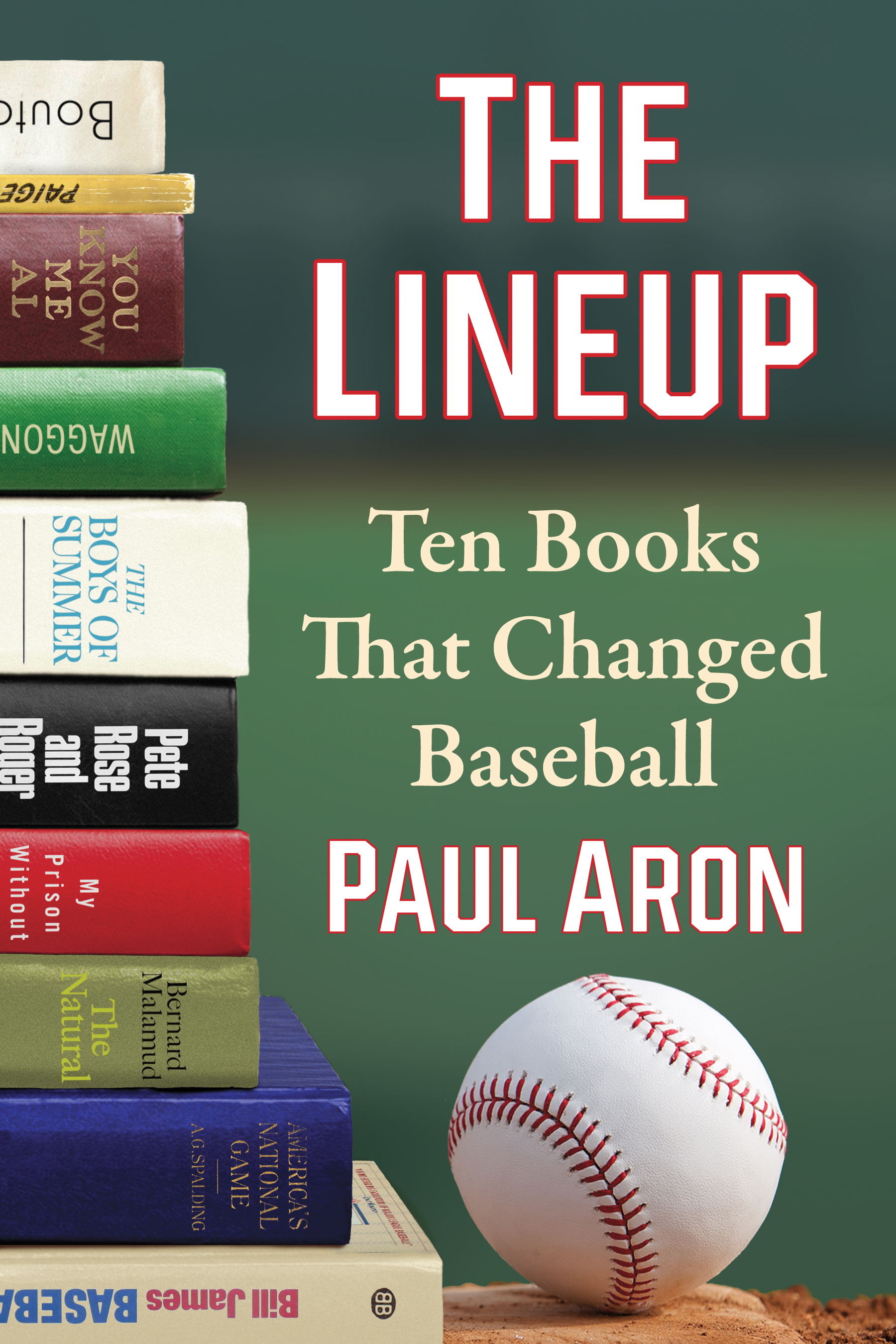Here are ten books that changed America.
Thats a pretty grandiose claim, I realize. After all, theyre just books. And no matter how many times one might cite the influence of Uncle Toms Cabin or works by Darwin or Marx or Freud, a strong case can be made that there have never been enough serious readers in America for any book to have changed the course of our history. Moreover, these are baseball books, and no matter how many times one might quote Jacques Barzun about baseball being the way to know the heart and mind of America, its still just a game. To some extent, these books changed baseball, not America, or sometimes just reflected changes in baseball.
But enough backtracking. To some considerable extent, I hope the chapters that follow will convince you that these books really did change both baseball and America; that, for example, Hemingways dialogue would not have been the same had it not been for Ring Lardners You Know Me Al ; or that general managers (and even some managers in businesses other than baseball) analyzed numbers differently because of Bill Jamess Baseball Abstract ; or that suburbanites changed the way they thought of cities because of Roger Kahns Boys of Summer ; or that Americans thought differently about the sex lives of celebrities because of Jim Boutons Ball Four ; or that Pete Roses Pete Rose: My Story and My Prison Without Bars exposed and deepened a divide that opened the way for Donald Trump.
One final caveat: I make no claim that these are the best baseball books ever written. Some of them certainly deserve to be considered among the best. But this is a book about the influence rather than the quality of these books.
1
Americas National Game
by A.G. Spalding
New York: American Sports Publishing Co., 1911
A.G. Spaldings book not only established baseball as Americas national pastime but also went a long way toward defining what it meant to be Americanor at least what Americans thought it meantin the late nineteenth and early twentieth century.
Baseball, Spalding proclaimed in 1911 in Americas National Game , is the exponent of American Courage, Confidence, Combativeness; American Dash, Discipline, Determination; American Energy, Eagerness, Enthusiasm; American Pluck, Persistency, Performance; American Spirit, Sagacity, Success; American Vim Vigor, Virility.
Sure, cricket was a fine gamefor the British. Our British Cricketer, Spalding explained, having finished his days labor at noon, may don his negligee shirt, his white trousers, his gorgeous hosiery and his canvas shoes, and sally forth to the field of sport, with his sweetheart on one arm and his Cricket bat under the other, knowing that he may engage in his national pastime without soiling his linen or neglecting his lady.
But an American, Spalding continued, when he dons his Base Ball Suit, he says good-bye to society, doffs his gentility, and becomesjust a Ball Player! If a slide is called for, forgetting his beautiful new flannel uniform, he cares not if the mud is four inches deep at the base he intends to reach. If his sweetheart is in the grandstand, she is not for him while the game lasts.
Considering that football players hit each other a lot harder and more often than baseball players, its a bit surprising to find Spalding describe baseball as the epitome of American virility. But so it was for Spalding, and not just for players but for the fan, whose sole object in life for two mortal hours is to gain victory for the home team, and is not overscrupulous as to the amount of racket emanating from his immediate vicinity.
Baseball, as Spalding chronicled its history, was embraced by colleges, by the army and the navy (including both Northerners and Southerners during the Civil War), and by the people of Alaska and Hawaii (neither of which would become a state until almost fifty years after Americas National Game was published). And by presidents: Spalding included an oft-told but dubious story about how Abraham Lincoln was in the middle of a game when he was told a committee had arrived to inform him that he had been nominated by the Republican Party. Tell the gentlemen, that I am glad to know of their coming, Lincoln said (according to Spalding), but theyll have to wait a few minutes till I make another base hit.
Above all, Spalding boasted, baseball was democratic. Any boy who played baseball could become president, even if he was born in a log cabin. The son of a President of the United States would as soon play ball with Patsy Flanigan as with Lawrence Lionel Livingston, Spalding wrote. Whether Patsys dad was a banker or a boiler-maker would never enter the mind of the White House lad.
Alexis De Tocqueville couldnt have said it better.
But the world De Tocqueville had visited in 1831 and described in Democracy in America was by 1911 more nostalgia than reality. More and more Americans were working in factories instead of farms. More and more were living in cities rather than small towns. A great gap separated the wealthy from the poor, making it highly unlikely that Patsy and Lionel would play together or that Patsy would end up in the White House. This was a world in which Horatio Algers rags-to-riches stories were increasingly popular and increasingly unrealistic.
And Spalding had done his part to create this new world.
Spaldings own story did not take him from rags to riches but he did rise from middle class to magnate. More specifically, he started as a player and ended up as an owner. He first garnered attention playing for the unheralded Forest City club of Rockford, Illinois. In 1867, the very heralded National Baseball Club of Washington, D.C., took a tour to the west and defeated almost every team it faced by scores such as 113 to 26 and 53 to 26. (The rules and customs of the time most definitely favored hitters; for example, pitchers had to throw underhand and fielders didnt wear gloves.) The Washington teams only defeat came at the hands of Rockford, whose pitcher was the seventeen-year-old Spalding.
At this point in history, wrote the political and baseball commentator George Will, it is almost fair to say that Chicago was, in baseball terms, a suburb of Rockford. But the big citys pride was at stake and soon after Forest Citys big upset, Spalding received an offer from Chicagos Excelsior club. Baseball was still ostensibly an amateur sport; the first openly professional team, the Cincinnati Red Stockings, did not organize themselves as such until 1869. So, rather than paying him directly, the Excelsiors arranged a job for Spalding as a clerk at a Chicago wholesale grocery. He happily accepted, but the grocery soon went out of business and Spalding returned to Rockford.


